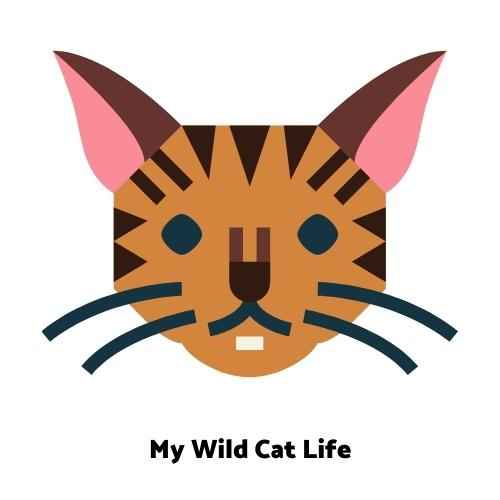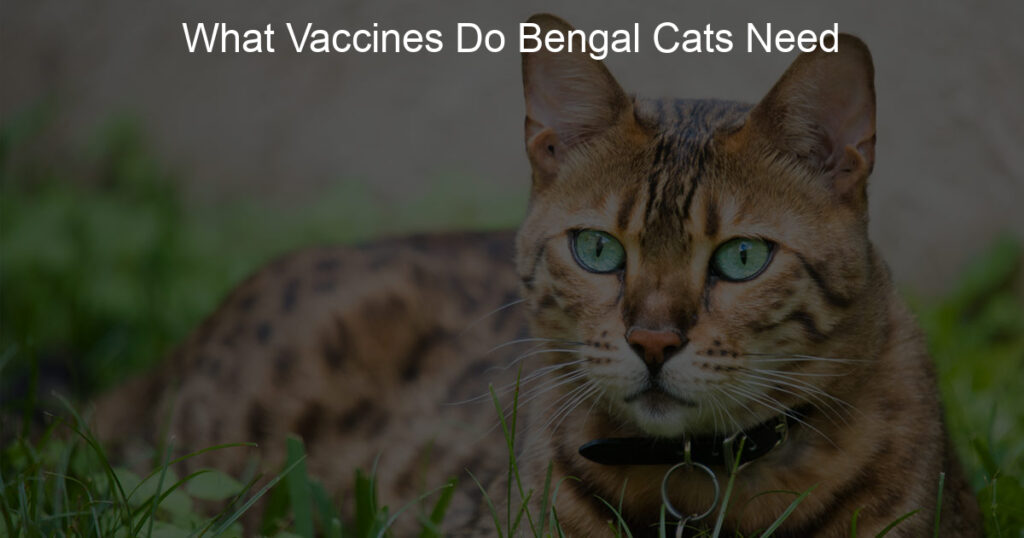If you’re a Bengal cat owner, then you know that these cats are unique in both their appearance and their personality. Bengals are known for being independent and intelligent, and they can make great pets.
However, because they are such unique creatures, they also have some specific needs when it comes to vaccinations. In this blog post, we’ll take a look at what vaccines your Bengal cat needs to stay healthy. Keep reading to learn more!
Are Bengals immune to feline leukemia?
Bengals are a very special breed of cat, but one question that many potential owners have is whether they are immune to feline leukemia. While anecdotal evidence suggests that the Bengals may be genetically resistant, this has yet to be proven by a scientific study. There is some evidence that Bengal cats, because of their wild ancestry, carry a modified gene that inhibits the transmission of the virus, allowing them to fight it off more easily than other cats.
While no studies have conclusively proved that Bengals are not susceptible to feline leukemia, this anti-viral gene raises the possibility and causes some pet owners to feel safer about getting a Bengal as opposed to another breed of cat.
What vaccines Do cats need?
Deciding which vaccines your cat needs may seem like a daunting task, but with the help of your veterinarian and knowledge of feline diseases, you can make an informed decision. Cats should receive basic core vaccines for feline panleukopenia virus, feline calicivirus, and feline herpesvirus at 8-12 weeks then again 1 year later, followed by annual boosters. After initial vaccinations, cats should also get a booster for rabies per local laws that relates to your pet’s longevity, which will add an extra element to consider when making important decisions about their health care.
In addition to traditional vaccines, some cats may benefit from additional protection against specific viruses in their environment; fortunately, these antibodies can now be provided as a single vaccination known as a “lifestyle” vaccine. Once you consult with your vet and determine the right route for ensuring your cat’s safety it is important to stay on track with subsequent immunizations as outlined by your veterinarian.
What vaccines do indoor cats need?
Indoor cats are relatively safe from diseases and parasites, but the threat of these still exists. Vet clinics recommend certain vaccinations for indoor cats to protect them from illness. Vaccinations such as rabies, feline leukemia, and FVRCP (feline viral rhinotracheitis, calicivirus, and panleukopenia) are the minimum recommended vaccines to protect your cat indoors.
Talk to your veterinarian about any questions you may have regarding vaccinations for your indoor cat. Protecting your cat is important – protecting against feline illnesses can help keep your indoor cat happy and healthy for years to come.
What are the 3 vaccines for cats?
It is important to vaccinate your cat against common illnesses, and thankfully three core vaccines make sure your furry little pal can live a long, healthy life. Feline Panleukopenia, Rhinotracheitis, and Calicivirus are the most contagious and potentially fatal diseases that cats can come in contact with. Vaccines for these illnesses protect your pet against exposure and help keep them safe.
Veterinarians will be able to explain which of these three vaccines may be most suitable for your particular cat. Be sure to stay up-to-date on any new vaccinations recommended as medicine advances throughout the years – it’s crucial to stay one step ahead of illnesses when protecting your cherished family feline!
What happens if you don’t vaccinate your cat?
If you don’t vaccinate your cat, your feline friend could be exposed to potentially fatal illnesses. Unvaccinated cats are at risk for viruses such as Feline Panleukopenia Virus and Feline Calicivirus, both of which can lead to life-threatening Infectious Respiratory Disease Complex in cats.
Additionally, you may increase the risk of infection for other cats in the same vicinity – if even one unvaccinated cat becomes infected with a disease like Rabies, all the cats living nearby could become infected as well. To ensure that your cat remains as healthy and safe as possible, be sure to follow your veterinarian’s recommendations for vaccinations.
What is fully vaccinated for a cat?
Vaccinating your cat is essential to its health and well-being. A fully vaccinated cat typically has had several medical treatments to ensure proper immunization against various diseases. This usually involves three core vaccines as well as additional protocols depending on the animal’s age and lifestyle. The core vaccines generally include protection from feline herpes virus, feline distemper, and Rabies, which is an absolute must for outdoor cats. Other routine vaccinations may be recommended for cats depending on their particular environments such as those for Feline Leukemia, Calicivirus, or Chlamydia.
Additionally, deworming and flea preventatives should also be part of your cat’s vaccination plan. Working with a veterinarian can help you create the most appropriate schedule tailored to your pet’s individual needs so they can remain healthy and happy.
Conclusion: What Vaccines Do Bengal Cats Need
All in all, proper vaccination is an essential part of keeping Bengal cats healthy. Vaccines not only protect them from contagious diseases but can also strengthen their immune systems. Owners need to keep track of the dates their Bengals were last vaccinated and take them to their vet for routine booster shots. Owners should also refrain from exposing their pets to ill animals or places with high traffic and make sure they discuss any confusion or doubts they may have with their veterinarian.
Furthermore, having a pet health insurance policy may be beneficial to cover the costs of vaccinations and other vet visits due to unexpected ailments or injuries. Finally, prevention is always better than cure, and making sure your Bengal cat is up to date on its vaccinations will help ensure a long and healthy life for both you and your furry friend!














